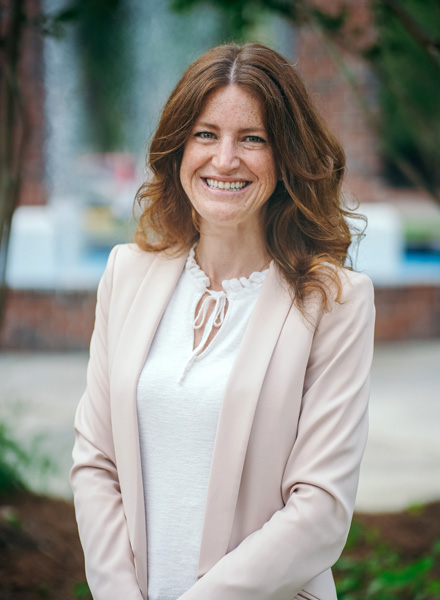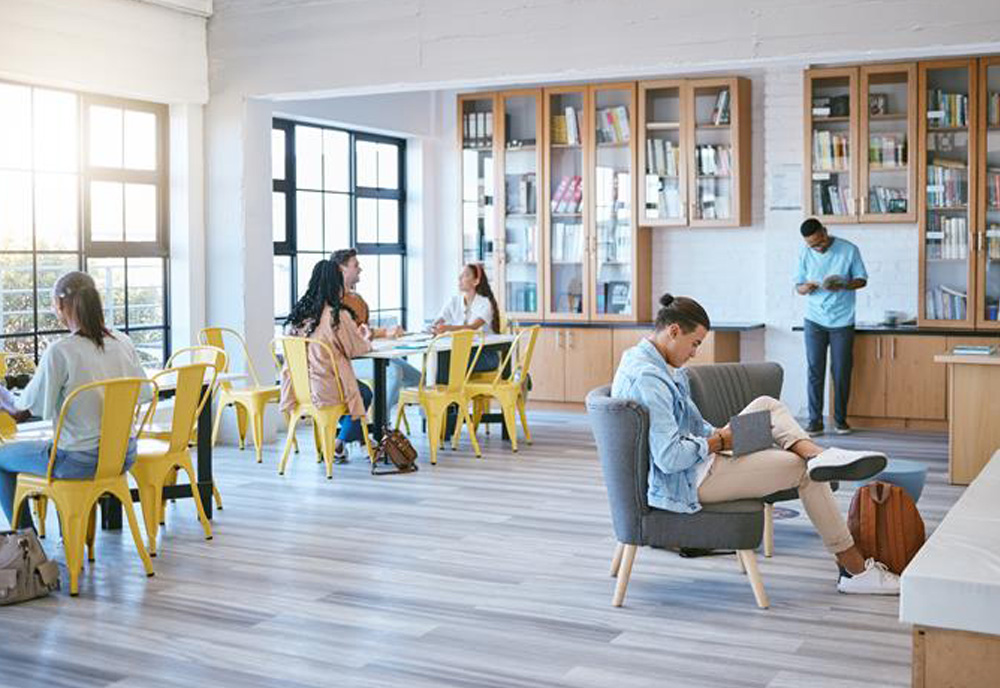USF College of Arts and Sciences’ Amelia Anderson, an assistant professor in the School of Information, is the 2024-2025 recipient of the Connie Van Fleet Award from the Association for Library and Information Science Education (ALISE) – a non-profit organization focused on advancing library and information science education through research, advocacy and professional development.

Amelia Anderson, PhD
Presented to just one recipient each year, the award recognizes an individual or team
for outstanding research contributions in the field of public library services.
“I’m honored,” Anderson said. “This recognition lets me know my contributions have
value, and it has inspired me to continue the important work I am doing in this area.
I’m grateful to be able to do work that focuses on improving services for library
patrons.”
Anderson, whose research interests primarily focus on library services for special
populations, has dedicated much of her time to examining the intersection of disability
and the library profession, with a particular emphasis on autism.
“I started this work as a doctoral student at FSU and have found that each study unfolds
even more opportunity for exploration and more ways to provide library practitioners
with immediate opportunities to implement more inclusive practices,” she added.
Anderson said the committee focused on two of her current projects, including her
work as co-principal investigator on an Institute of Museum and Library Services grant
that used inclusive practices to explore the experiences of adult patrons with disabilities
in public library makerspaces.
“Makerspaces have the potential to be particularly inclusive learning spaces, allowing patrons to learn, explore and build community in a low-pressure environment. While some case studies have explored individual makerspace accessibility, little work has been done to study experiences and barriers in the public library makerspace for adults with disabilities,” she explained. “From grant findings, we then created a list of practical guidelines for creating more inclusive public library makerspaces. Findings have been shared widely, as they may help lead to more accessible, inclusive public library makerspaces for all.”
“Makerspaces have the potential to be particularly inclusive learning spaces, allowing patrons to learn, explore and build community in a low-pressure environment,” Anderson explained.
The committee also acknowledged Anderson’s research on how public libraries recognize
Autism Acceptance Month — formerly known as Autism Awareness Month — which is in April.
“The study explored what services public libraries in the U.S. are providing about
autism in the month of April, and what language they use to describe it,” she said.
Anderson’s results found that while few public libraries hold special events to celebrate
autism in April, those that do share potentially valuable information about autism
with parents, caregivers, educators and members of the community at large.
“Some also provide important opportunities for autistic patrons to gather. However,
many event descriptions use language that is not in alignment with autistic individuals’
preferences, and opportunities for autistic patrons of all ages are limited. Results
from this study highlight gaps in public library programming, with implications for
providing better services around Autism Acceptance Month,” she explained.
Anderson was also recently awarded a grant by the Institute of Museum and Library
Services to work with autistic stakeholders to identify what training school librarians
need to better serve their autistic students.
Anderson, who previously worked as a branch librarian in Hernando County, said her
favorite thing to do as a librarian was work with adults.
Joining the School of Information — whose Library and Information Sciences master’s
program is ranked 15th in the world by Shanghai World Rankings and is also the highest
ranked program at USF — has become one of her proudest professional moments.
“It was always my dream to come back, and I still can’t believe that I am back here.
As a librarian, I liked it all, from research assistance to readers’ advisory to program
planning. I loved searching for answers to complicated reference questions, locating
the perfect book for a patron in need and hosting book clubs. I'm grateful for that
foundation for my current work as a researcher, and I feel that it guides the work
I do now. I think this award reflects that my research has practical application for
public librarians.”
Learn more about Anderson’s work and the School of Information.
